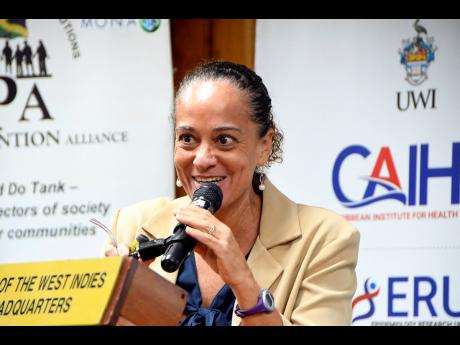Child Resiliency Programme engages children during pandemic
Despite the challenges caused from the COVID-19 restrictions, the Child Resiliency Programme administered by the Violence Prevention Alliance (VPA) engaged some 48 children and parents during the academic year 2020-21, both virtually and face to face.
Dr Kim Scott, director of the programme, said that children were supported virtually via direct phone calls. In addition, lessons were completed by using WhatsApp, a free application which facilitates its users to do video calling and voice recordings. Home visits were also done in collaboration with the police, following the COVID-19 protocols.
“The children have increased their literacy levels (including computer literacy) and have fostered an increased love for learning, particularly reading. Their mental health was supported through dance, football, circle time and counselling in small groups with all COVID-19 protective protocols in place,” she said.
The director revealed that children were guided through a series of 30 life skills themes throughout the year. Parents in turn participated in monthly parent training workshops and parent WhatsApp support groups. They were supported to increase strategies for conflict resolution, to continue to be more collaborative in the child’s virtual learning experiences, and to increase their ability to find alternate discipline strategies apart from the old traditional beating method. Additionally, they were guided to set clear rules and boundaries for their children.
CLOSING EXERCISES
The programme closed off for this academic year at the end of June, with children performing in singing, dancing and skits demonstrating some of the themes taught throughout the year. Dr Scott communicated that all children received gift bags of a novel, treats, crayons and writing material at the programme-leaving exercise. In addition, behavioural prizes were awarded to the top 12 performing children every five weeks.
The winning houses were taken on a field trip to Hope Gardens at the end of each term. “They were offered a well-needed nutritional meal on attendance, and the parents continued to express their gratitude for the continuing of the programme intervention throughout the COVID-19 pandemic,” said Dr Scott.
Meanwhile, all programme staff were engaged in resiliency and wellness coaching throughout the year in light of the pandemic. They also participated in a three-month community leadership certification programme with the International University of the Caribbean during May to July. The programme will resume in September.
The Child Resiliency Programme began in 2006 as an outreach programme of the Hope United Church, under the umbrella of the Hope Counselling and Wellness Centre. In 2014, the programme began operating out of the VPA.
It seeks to meet the needs of pre-adolescents and build on their competencies as the most effective strategy for preventing multiple problems. It also aims to focus on promoting physical, social, cognitive, vocational and moral competence.

